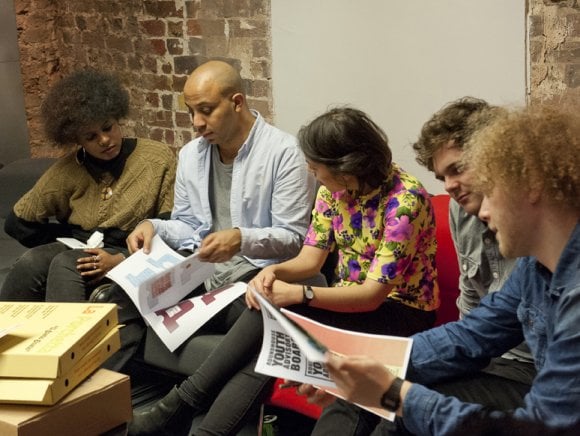
Photo: Saira Awan
Promoting the youth voice
If your audience includes young people, then they need to be represented on your board. Marcus Davey of the Roundhouse shares his advice for recruiting young trustees.
A recent report by the Charity Commission found that a majority of charity trustees (92%) are white, older with an above average income and education, and that men outnumber women by two to one. This makes for quite sobering reading, but arts organisations are doing better – black and minority ethnic people and women are more likely to be represented on arts boards.
But one area that is lacking across the board is the youth voice. In fact, the average age of a trustee is 55 to 65 (and 65 to 74 for smaller charities). Any organisation that wishes to foster progressive attitudes and remain relevant must include a diverse range of people in its decision-making processes.
Young trustees should never be a tick box requirement of an organisation – it really needs to work for your board
This applies right up to the top of the organisation – and here at the Roundhouse in London we put young people at the heart. If your audience includes young people, then your board should too. We believe that greater diversity makes for better decision-making.
Most importantly, by giving young people the chance to take on the role of a trustee we can help them to develop skills and foster relationships that will be of huge benefit to them later on in life. They are exposed to and part of conversations, which many have told us made them feel more confident to take on leadership roles in both their personal and professional life.
They also develop their knowledge in areas such as finance, marketing and programming. We’ve gone on to watch our previous young trustees take on roles in other arts organisations and within the wider creative industries.
A positive experience
In order to ensure this is a positive experience for young people, there are some steps you need to take to make sure your board is truly engaged with the idea and that young people feel supported throughout the process.
First, you need to persuade your board about the benefits. There are two main arguments – representation and resilience. Rather than having conversations about your audience, if you have them in the room, you can have the conversation with them. It can also make your organisation more resilient as our young trustees push boundaries and challenge perceived wisdom, which encourages innovation and change. But young trustees should never be a tick box requirement of an organisation – it really needs to work for your board.
Once that decision has been made, the best next step is to prepare your board with an away day. This will give everyone a chance to air concerns and explore the impact on your organisation with an external facilitator. It will bring up some honest conversations about how your board currently functions but will allow you to decide where you want your board to be. You will also need to talk about the criteria for young trustees, including age, skills and capacity, and appointment and induction processes.
Recruitment and induction
Then you need to think about your recruitment, which should always start with the community you serve. Just like any other trustee, young trustees need to advocate for the work you do, and actually they often are the biggest advocates of your work. If you don’t have young people already involved in your organisation, look to community partners who can help you foster relationships with young people in your community.
Think about their journey through your organisation and it may be that the first step to engage them in is a youth board and then they can progress on to being a trustee. It can take time for people to feel comfortable taking on a leadership role and they need a safe space to express their thoughts and opinions to truly build their confidence.
Next up is the application process which needs to be accessible and straightforward. While you want to encourage serious applicants, you don’t want to put anyone off, and we’ve found that just an A4 application suffices. The most important point though is to take the whole process seriously so young people feel prepared for the role they’re about to take on and also that they know you’re taking their role seriously.
Once you have recruited your young trustees, you need to think about the induction process – a board meeting can feel daunting for anyone. At the Roundhouse, newly appointed trustees, including young ones, have time with senior management to learn about the different areas of our organisation. Young trustees also get time with current young trustees so they can discuss the successes and challenges openly with other young people. Trustees need to be prepared so young trustees feel supported and engaged and never undermined or patronised.
We’ve created Guided by Young Voices. It contains advice and practical tips on how to prepare your board, build a talent pool, support young trustees and overcome potential challenges along the way.
During what are increasingly tough times for young people it’s more important than ever to provide them with adequate representation and a voice within our organisations. It’s time to give the leaders of tomorrow a platform today.
Marcus Davey is Chief Executive and Artistic Director of Roundhouse.
www.roundhouse.org.uk
Tw: @MarcusDavey_ @RoundhouseLDN
Join the Discussion
You must be logged in to post a comment.